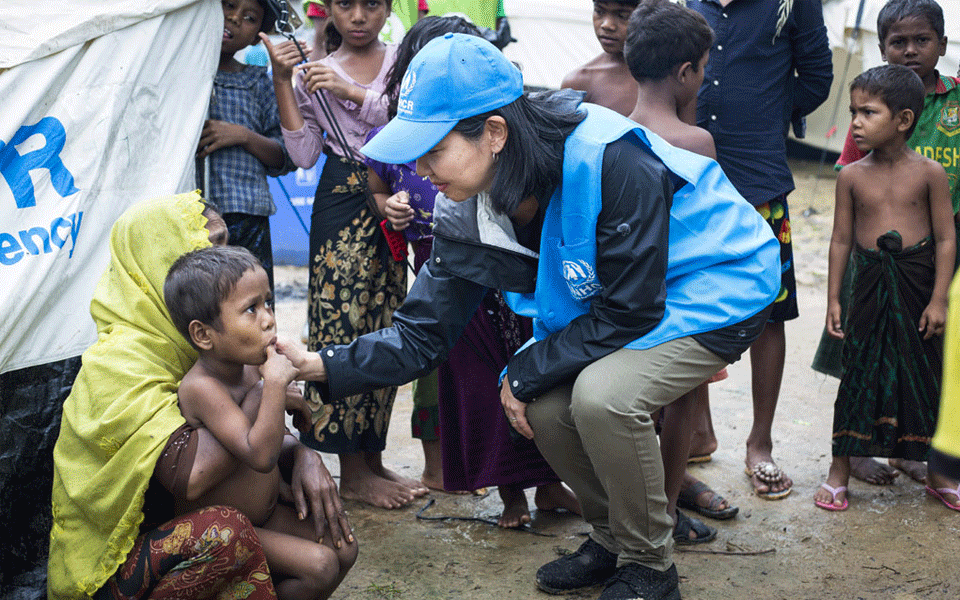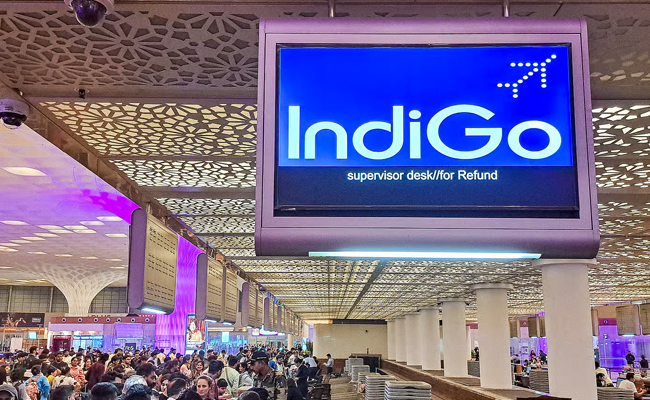New Delhi, Aug 24: The World Health Organization (WHO) on Friday expressed concern over the health condition of Rohingya refugees living in Cox's Bazar in Bangladesh and said a severe fund crunch has threatened continuation of health services in the refugee camps.
The Bangladesh government, WHO and other health agencies have worked to save thousands of Rohingya lives and prevented the spread of deadly diseases among nearly one million refugees, said WHO in a statement.
"Despite these efforts, Rohingyas remain vulnerable with their evolving health needs, and a severe funding crunch is threatening continuity of life saving health services in their camps" said the organisation.
The persecution by Myanmar's security forces triggered the arrival of nearly 7,00,000 Rohingyas into Bangladesh beginning August 25, 2017.
WHO termed this arrival was one of the largest ever population influxes over a short span of time.
"Women, children and the elderly arrived with injuries, low immunization coverage, high rates of malnutrition, in need of reproductive health care and psycho-social support, and at risk of deadly disease outbreaks" said WHO.
Explaining the challenges, WHO, said 70 per cent of births still takes place outside health facilities as Rohingya population was reluctant to access sexual and reproductive health services.
WHO's Deputy Director- General for Emergency Preparedness, Peter Salama said "we have done things that collectively we can be proud of. However, we need to continue to support the health needs of this vulnerable population and remain vigilant against the spread of diseases."
"This is still a very fragile situation," said Dr Peter, who visited the Rohingya camps in Bangladesh.
Let the Truth be known. If you read VB and like VB, please be a VB Supporter and Help us deliver the Truth to one and all.
Bengaluru (PTI): The Karnataka government has issued directions to municipal corporations across the state to regulate and prohibit feeding pigeons in public places, citing serious public health concerns.
Deputy Secretary to Government V Lakshmikanth has written to the Urban Development Department requesting it to issue directions to the Greater Bengaluru Authority (GBA) and all municipal corporations to take immediate steps to implement the measures.
In an official note dated December 16 issued by the Health and Family Welfare Department and released to the media on Wednesday, the department said uncontrolled feeding of pigeons in public places has resulted in large congregations of birds, excessive droppings and serious health concerns, particularly respiratory illnesses linked to prolonged exposure to pigeon droppings and feathers such as hypersensitivity pneumonitis and other lung diseases.
ALSO READ: Chinese GPS tracker found on seagull near Karwar Coast
"The commissioner, the Greater Bengaluru Authority and the Commissioners and chief officers of other municipal corporations shall take necessary action to mitigate the causes of dangerous disease spread by pigeon and enforce specified guidelines in their respective jurisdiction," the note said.
According to the department, these include a prohibition on feeding pigeons or causing pigeons to be fed in areas where it may cause nuisance or pose a health hazard to the public. Pigeon feeding shall be permitted only in designated areas in a controlled manner, subject to certain conditions.
"The designated areas may be selected in consultation with stakeholders. The responsibility for upkeep of the designated areas and compliance to the directions shall be taken up by some charitable organisation or an NGO. The feeding in designated areas shall be permitted only for some limited hours in the day," it said.
The note further stated that authorised officers of local authorities shall issue on-the-spot warnings and may impose fines for violation of the order, or lodge complaints to prosecute offenders under Sections 271 (Negligent act likely to spread infection of disease dangerous to life) and 272 (Malignant act likely to spread infection of disease dangerous to life) of the Bharatiya Nyaya Sanhita.
It also directed local authorities to conduct public awareness campaigns, including the display of signboards, banners and digital messages, explaining the health hazards associated with pigeon droppings and feathers, the content of the regulatory directions and penalties for violations, and alternative humane methods of bird conservation that do not endanger public health.





